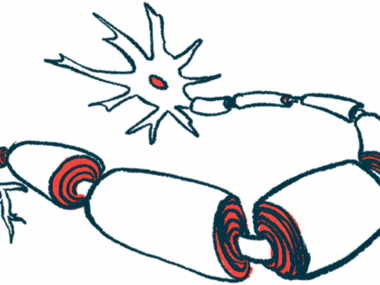Delays of MS diagnosis in Finland reduced by half over last decade
Time to diagnosis from symptom onset fell from 10.1 to 4.6 months
Written by |

Over the past decade, diagnoses of multiple sclerosis (MS) in Finland have become faster and treatments now follow the latest evidence, with about five times as many patients receiving high-efficacy disease-modifying therapies (DMTs) as first-line options, a study finds.
Drawing on registry data, researchers found that diagnoses are now taking less than half the time from the onset of symptoms — from 10.1 months in 2013 down to 4.6 months in 2022. While these changes in diagnosing and treating MS come on the heels of new evidence and recommendations, their extent was unexpected, the researchers wrote.
“This study shows that in Finland, the treatment of neurological patients follows international research findings and is implemented accordingly,” Mervi Ryytty, MD, PhD, study senior author from the University of Oulu, said in a university press release.
Even during the COVID-19 pandemic, there were no delays in treating MS.
“Despite the challenges faced by the public healthcare system, including resource constraints and the pandemic, treatment delays have remained minimal,” Ryytty said.
The study, “Evolving Patterns of Initial RRMS Treatment in Finland (2013–2022): Insights From a Nationwide Multiple Sclerosis Register,” was published in Brain and Behavior. It was funded by Novartis Finland Oy, and one of its authors is an employee at the company.
“This study is an example of how a pharmaceutical company can collaborate with researchers to provide valuable real-world data by leveraging Finland’s high-quality registry data,” said Elina Jokinen, PhD, a medical manager at Novartis who contributed to the research.
MS is an autoimmune disease that damages the protective myelin covering around nerve cells in the brain and spinal cord. Its most common form, relapsing-remitting MS (RRMS), is marked by relapses, when existing symptoms suddenly worsen or new ones appear, followed by periods of remission, when they ease.
An improved diagnostic, treatment landscape
In the past decade or so, the MS treatment landscape has changed dramatically, with more than 20 DMTs now available. Evidence also supports that initiating a high-efficacy medication is linked to better long-term outcomes, but treatment strategies among countries still seem to vary a lot.
Here, researchers drew on registry data from adult RRMS patients diagnosed between 2010 and 2022, and who started treatment between 2013 and 2022, to better understand trends in treatment in Finland over the past decade, as well as how diagnoses have changed with the introduction of updated diagnostic criteria.
“For pharmaceutical companies, as well as other healthcare providers, it is essential to understand how MS treatment in Finland has evolved and what the current situation looks like,” Jokinen said.
The median time from the onset of symptoms to diagnosis was 10.1 months in 2013. This remained stable until 2020 when a notable decrease in diagnostic delays was observed. By 2022, it took a median of 4.6 months to diagnose someone with RRMS.
Over the study’s follow-up period, the time from diagnosis to starting a DMT remained steady, at a median of 1.9 months.
The use of moderately effective DMTs as first-line options, which was commonly used as part of a so-called escalation strategy, decreased from 92.8% in 2013 to 56.3% in 2022. This showed that the use of high-efficacy DMTs as a first-line therapy increased by more than five times — from 6.9% to 43.7% — over that time.
“Apparently, the treatment paradigm is shifting from an escalation strategy toward [early intensive therapy],” the researchers wrote. “In Finland, the treatment of RRMS has shifted toward earlier diagnosis and earlier initiation of [highly effective DMTs], likely improving the prognosis of the patients.”
The study was a collaboration between the University of Oulu, Novartis, and StellarQ Oy, along with researchers from the universities of Turku and Helsinki in Finland. Data came from the Finnish MS Register, the prescription registry of the Finnish Insurance Institution, and the National Care Register for Health Care.



